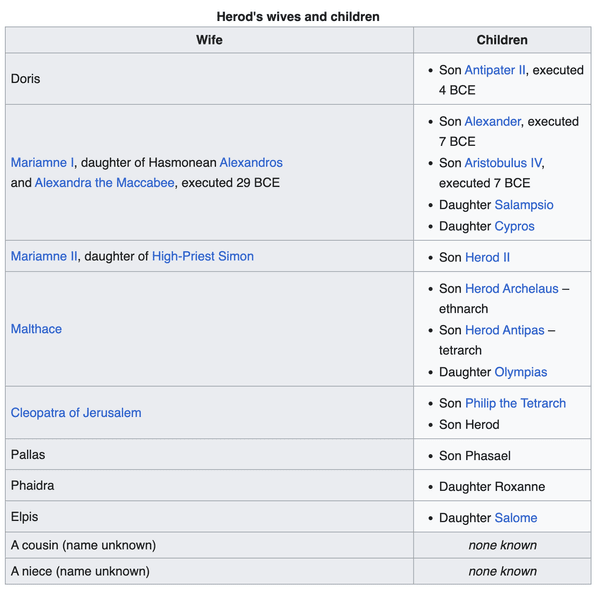Theology
Various theological bits as I prep my weekly sermon and read
Theology
Various theological bits as I prep my weekly sermon and read
is that we must refrain from judging others; we must humbly acknowledge that we have no access to other people’s hearts and that judging people is the sole prerogative of God.21
Hillel and the Golden Rule:
The statement attributed to Hillel, "What is hateful to you, do not do to your neighbor; this is the whole Torah; all the rest is commentary," appears in the Babylonian Talmud, Tractate Shabbat 31a. Here's the relevant passage:
> אָמַר הִלְיוּן אַבְטָא רַבּוּת שֶׁמָּה נָבוֹן וּמָה נָבוֹן אֵלֶּה שֶׁנֶּאֱמָר לְךָ בְּשַׁבֶּךָ
... See more
Herod the Great Wives and Children
Isaiah 11:1-2
Ah, you who make iniquitous decrees,
who write oppressive statutes,
2 to turn aside the needy from justice
and to rob the poor of my people of their right,
that widows may be your spoil,
and that you may make the orphans your prey!
Isaiah 11:3b-5
He shall not judge by what his eyes see,
or decide by what his ears hear;
4 but with righteousness he shall judge the poor,
and decide with equity for the meek of the earth;
he shall strike the earth with the rod of his mouth,
and with the breath of his lips he shall kill the wicked.
5 Righteousness shall be the belt around his waist,
and
... See moreThe Problem with Judging
Chrysostom, “thou art making the judgment-seat dreadful to thyself, and the account strict,” p. 158)
The Golden Rule—the principle of treating others as one would like to be treated—is found in many different faith traditions and philosophies outside of Christianity. This widespread occurrence suggests that it may have originated independently among various cultures or evolved naturally from basic human empathy and ethics. Here are some examples:
1
... See moreHerod the Great
Herod the Great (37–4 BC). In 37 BC, the Idumean ruler Herod the Great captured Jerusalem with Roman support and was designated king of Judea by the Roman Senate. Herod had a significant impact on the life setting of Jesus and the early church.
Herod’s consolidation of power: Herod was a close friend of Mark Antony and sided with
... See moreMatthew 7:5 and the hypocrite:
He is a hypocrite because his unkind criticism takes the outward form of a kindly act.